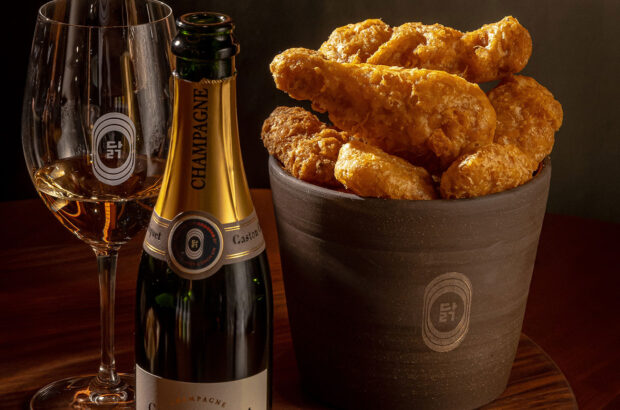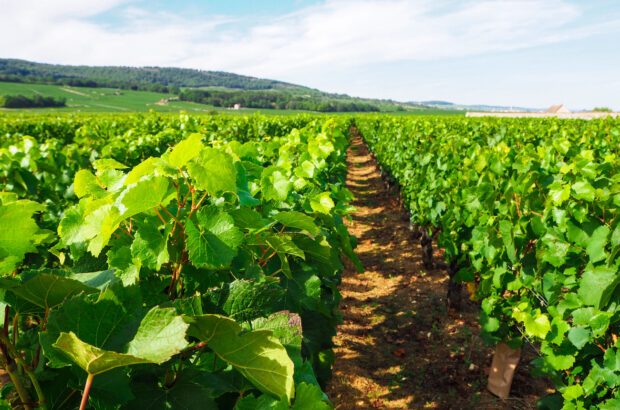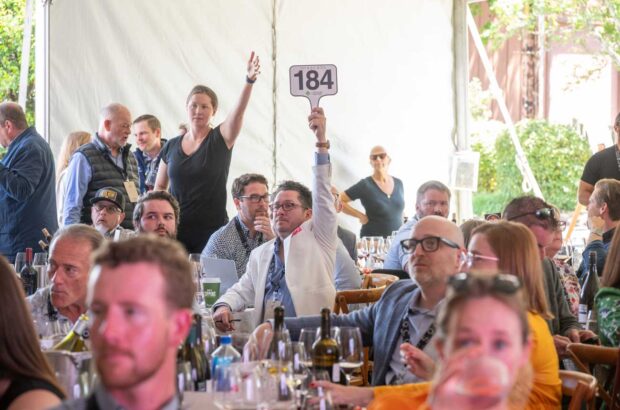Andrew Jefford talks to Gisela Kreglinger, author of a new book called The Spirituality of Wine...
What does wine mean to you? Work, perhaps … but if you’re reading this, it’s almost certainly an enthusiasm, a passion. Does it, though, play a role in your spiritual existence? Does wine draw you closer to the sacred or, if you’re an atheist, to the transcendent?
I recently talked to Dr Gisela Kreglinger, the author of a new book called The Spirituality of Wine, about this and other topics. She comes from a Franconian wine-growing family and, as she studied historical theology and then later taught Christian spirituality, it came to seem to her “that theology is detached from agriculture, from the physical, from joy, from the senses, especially the senses of taste, touch and smell.” This struck her as anomalous, given the significance of wine in both Christianity and the Hebrew scriptures and cultural background from which it emerged, and given her own Lutheran family experiences in wine farming. “As a family, we worked our land, and we smelled our way through life, whether it was wine, mushrooms, berries or flowers. That’s just how I grew up.”
Existing wine writing, she feels, doesn’t address this issue. “Since the second half of the twentieth century, our talk about wine has become very peculiar. It’s all adjectives and adverbs about wine, written in a slightly exaggerated way. We live in a time when consumerism is such a strong part of our cultural expression that the end product is what we focus on, but you can talk about wine in much broader ways. It’s a bit impoverished, I think. And vintners are really tired of it.”
Hence her book. It’s divided into two parts. The first, ‘Sustenance’, traces the role of wine – sometimes literal, but more importantly metaphorical – in Hebrew and Christian writings, in church history and in Christian ritual.
Religion and wine
This fascinated me. Christianity is the world’s leading religion, practiced by 33 per cent of the world’s 7.4 billion people (atheists account for 2.5% and Jews for 0.23%, for a point of comparison). Even though I was brought up in the Christian tradition, I hadn’t realised just how central vines and wine are to Christian theory and practice, to the extent that it can be argued that those Christian sects which insist on abstention (including Mormons and Baptists) are acting in an unscriptural manner. Kreglinger herself doesn’t assert this; I asked her about it nonetheless. “I have a lot of compassion for them,” she told me, “though I don’t think it was right to forbid the drinking of wine. I think they should revisit that history.”
Luther himself enjoyed wine, as did John Calvin (Jehan Cauvin); hence Lutheranism and Calvinism are not anti-wine, even if radical variants have sometimes headed in this direction. Kreglinger’s fundamental tenet (I’m tempted to think of it as the ‘Gospel According to Babette’s Feast’, since she recounts the narrative of this Karen Blixen story, and the Gabriel Axel film made from it, so lovingly) is that wine is not only a gift from God but something unique within the created world which, if used wisely, can be of great spiritual benefit. She stresses the human rootedness in earth which is the very starting point of the Hebrew Scriptures (man – adam – is formed from the dust of the earth – adama), and which she feels a dogmatic or austere spirituality overlooks; wine can act as a kind of catalyst for our joyful apprehension of this.
Her coverage of the New Testament is fascinating, too, and she points out that Jesus himself was fond enough of wine to have been accused by fellow Hebrews of being “a glutton and a drunkard” – in other words of having surpassed Jewish ritual wine-drinking requirements, which in themselves are not ungenerous. The first miracle performed by Jesus at the wedding in Cana was not merely to turn water into wine (quite miraculous enough on its own) but into choice wine, the kind of wine which made those drinking it remark on its quality. At the very least, this resonance underlines the generosity of the divine gift. And of course it was wine, as ritually consumed during his final Passover meal with the disciples, that Jesus used to commemorate “my blood of the covenant”, and which subsequently came to play a pivotal role in the Christian eucharist.
Modern winemaking
In the (larger) second part of the book, called ‘Sustainability’, she ranges more widely through topics including technology in wine production, wine and health, and wine and alcohol abuse with, for me, only intermittent success. Fastidious wine-loving readers are likely to be irritated by sloppy editing (the capitalization of grape variety names is glaringly inconsistent; Clos De Vougeot on p.49 becomes Clos de Vougeot on p.90 and Clos Vougeot on p.92; you’ll find Cliquot, not Clicquot; Sauterne not Sauternes; while burgundian Jeremy Seysses is spelled Seysse and his fellow burgundian Michel Lafarge becomes Michael LaFarge). Her remarks about the effect of the free market and globalization on wine and technology in winemaking seem to me a little shallow and predictable. She interviews a number of wine-growers and commentators; only a small minority of them reply with the sort of insight which merits book coverage. Whenever she returns to the theological background, though, interest quickens and the topic she is considering suddenly seems to grow richer.
The second part of her book left me wondering whether ‘the spirituality of wine’ actually means much – once spirituality is removed from its original religious context, and once the pivotal, almost overwhelming metaphorical charge that the vine and wine carries in Jewish and Christian scripture and tradition has been expunged. These faiths (an atheist like myself reluctantly concludes) must make wine-drinking a much more spiritually enriching experience than it can be without that framework of belief.
Kreglinger pushes this discussion in interesting directions with sections on ‘Viticulture and soul care’ and ‘To drink is to pray’; she sagely quotes Simone Weil to the effect that “attention in its highest form is prayer”, pointing out the almost rapturous levels of attention which wine lovers are capable of when confronted with fine wines. I know from personal experience that this can approach the transcendent at the same time as being corporeal and carnal; the two, she insists, are not in contradiction. Those are wonderful human moments (something to which I alluded in last week’s blog).
Yet wine is a crafted beverage, not a work of art; it is a substance, not a set of ideas; and the transcendence it offers can’t really compete (for example) with that offered by great music, poetry or painting. Unless you are a Jew or a Christian – in which case your religious apprehensions will lend wine a sacred charge, something which affects the principles of your very being. That is astonishing.







